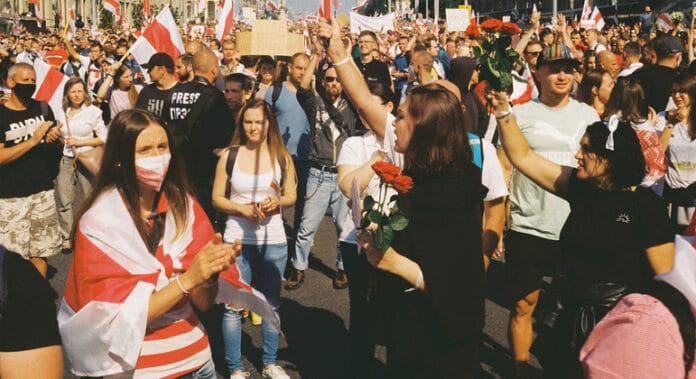
“Belarus has effectively criminalized human rights work at a time when the work of human rights defenders is more essential than ever”, said Mary Lawlor, Special Rapporteur on the situation of human rights defenders.
‘Special courage’
As the Government continues to crack down on demonstrators protesting the election, Ms. Lawlor said that “women human rights defenders are being particularly targeted”.
At least three of them have come under attack simply for doing their job during September and early October: “In Belarus, as in many other countries, it takes special courage for women to stand up for human rights”, upheld the UN expert.
Lodging charges
Ms. Lawlor drew attention to the arrest of Maria Rabkova – volunteer coordinator of a human rights centre that documents freedom of assembly and other rights – who is facing between six months and three years in prison on the grounds of educating or preparing people to participate in mass riots.
“The charge against Maria Rabkova is tantamount to the criminalization of human rights work”, she said. “Belarusian authorities must release her immediately and drop all charges.”
The UN expert also expressed concern over the prosecution of Irina Sukhiy and Marina Dubina, human rights defenders in the environmental non-governmental organization, Ecohome, who were detained on charges of violating protest procedures.
She noted that as the case progressed, authorities changed dates, saying that one date was specified when they were arrested, but exchanged for another in court, during sentencing.
“These apparent irregularities are extremely concerning”, attested Ms. Lawlor.
“Inconsistencies in the formal accusations brought against these two brave women raise serious questions as to the legal basis for their initial detention and subsequent sentencing”, she added.
Both women received short sentences of administrative detention.
Human rights work essential during unrest
The Special Rapporteur maintained that the work of human rights defenders is more essential than ever in times of unrest.
“When the risk of human rights violations increases, the documentation work carried out by defenders becomes crucial”, Ms. Lawlor flagged. “They must not be punished for pursuing it”.
Endorsing the remarks were Anaïs Marin, Special Rapporteur on the situation of human rights in Belarus; Clément Nyaletsossi Voule, Special Rapporteur on the rights of peaceful assembly and association; the Working Group on Arbitrary Detention; and the Working Group on discrimination against women and girls.
Special Rapporteurs and independent experts are appointed by the Geneva-based UN Human Rights Council to examine and report back on a specific human rights theme or a country situation. The positions are honorary and the experts are not paid for their work.




